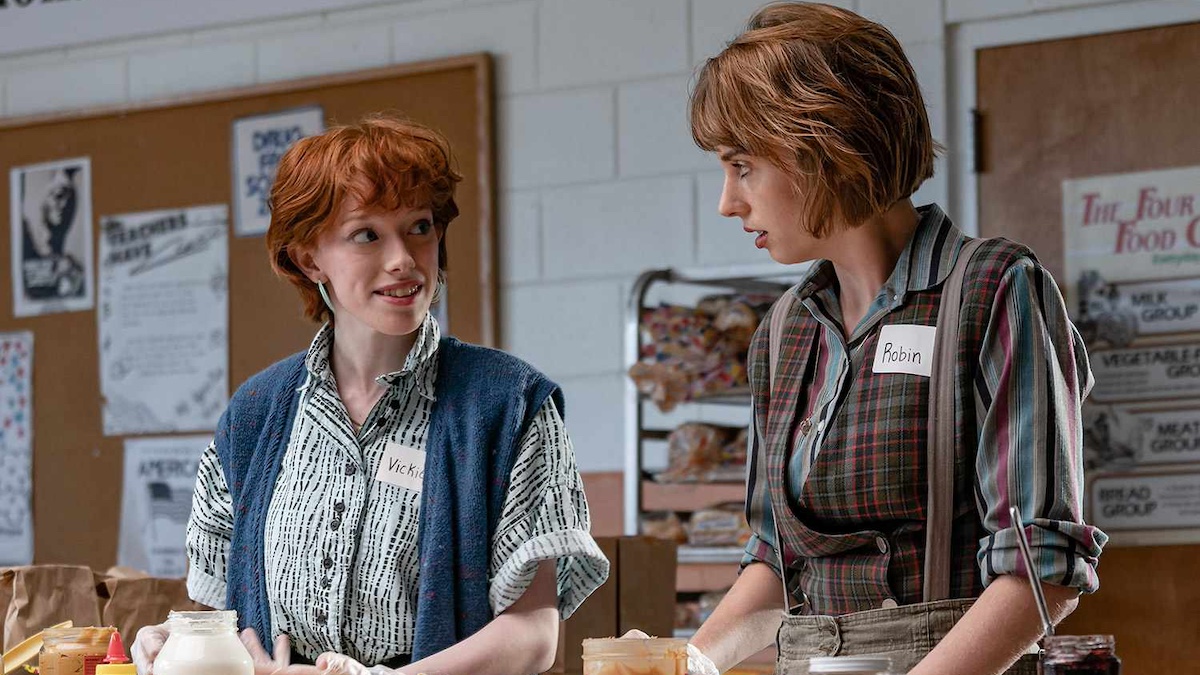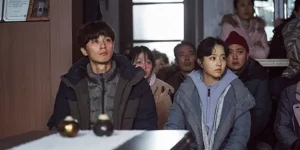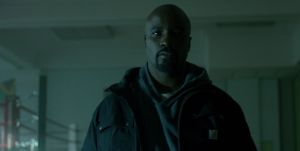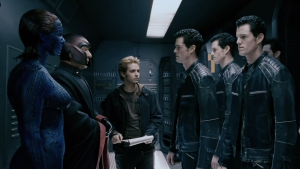
Stranger Things used its third season to try out a lot of novel storylines and mix up the tone of the series. From a sillier subtext to exponentially more analysis of the Cold War, not every fan enjoyed the shake-up. Hindsight says the show’s third act might deserve the most acclaim of them all, though, especially because of the addition of Robin Buckley (Maya Hawke). Robin’s free spirit and quickly-built chemistry with Steve Harrington (Joe Keery) and Dustin Henderson (Gaten Matarazzo) helped construct yet another one of the show’s indelible friend groups that persevered into season 4.
While Stranger Things might have a bad habit of adding too many new characters each year, Robin’s presence on the show is a concrete good that altered the genetic code of the storytelling. Fans felt a thick romantic tension between Steve and Robin throughout season 3, but a moment of solitude in a Starcourt Mall bathroom subverted those expectations and cemented the show’s queer legacy forever.
The timing of the scene is exquisite. With so much tension after Steve and Robin are interrogated by the Soviets in the basement of the mall, the characters deserve a moment to catch their breaths and reorient themselves with the world. The six-minute sequence starts with an admittance of love from Steve, but viewers get to see Robin’s solemn reaction and we immediately know she doesn’t feel the same way. The stall door separating the teenagers perfectly creates a barrier between them, but the camera allows a gateway into both people’s heads.
When Steve impatiently asks whether Robin has overdosed on truth serum, he slides under the door of the stall and sits across from his crush to wait for her answer. Robin’s anxiety is written over her face with an authenticity that almost all LGBTQ+ people at home can relate to. It conjures all of those thoughts in your head yet again. Is this person going to accept me? Will this person love me the same way they did before? In the case of Robin and Steve, will he still at least want to be friends?
Robin tells Steve that her ribbing of him and the jealousy she harbored was because her actual crush wouldn’t stop looking at him rather than her. Steve’s typical himbo ignorance confuses him momentarily, and Harrington delivers the line in fitting form. “But Tammy Thompson’s a girl.” As the epiphany that lesbians exist dawns upon our lovable goofball Steve, he takes a moment to process and then reaffirms Robin’s identity and their relationship. “Tammy Thompson, she’s cute and all, but she’s a total dud.”
The relief of acceptance that washes over Robin like a fresh rainbow on a cloudy day served not only as a seminal moment for her and Steve, but it ushered in Stranger Things as a harbinger of queerness. The series’ third season garnered a reported 95 million views, good for the ninth most all-time on the streamer. Having that number of eyeballs on Robin makes her coming out scene perhaps the most widespread in TV history. It takes a show that otherwise wouldn’t be thought of in the same light as something like Ellen, Will & Grace, or Pose and incorporates it into the fold of inspiration for non-straight and questioning kids all over the globe. Teens who might be afraid to watch Heartstopper or Love, Victor for fear of being forced out of the closet could watch Stranger Things and have their hearts filled with pride.
The series has continued to propel queer stories to the forefront of the plot, especially with Will Byers (Noah Schnapp) in season 4. His coming out scene to Mike was much more ambiguous than Robin’s, and perhaps more in line with how other queer kids in the 1980s must have felt when trying to decide just how much information to reveal to their friends about their sexualities. This gray area doesn’t make the scene any better or worse, but rather it signifies that the series understands not every LGBTQ+ person’s path is the same.
There’s plenty of symbolism and literary analysis that hints about Will’s romantic story expanding in the final season, something that will surely continue to add to the show’s pantheon of unforgettable gay moments. As far as Robin is concerned, she spent much of the fourth season with her eyes on Vickie (Amybeth McNulty), but a lack of screentime dedicated to the matter made it feel like a letdown after the coming out scene in season 3.
Stranger Things should re-punctuate Robin’s moment and legacy in queer TV with a fleshed-out romance that matches the vitality of the bathroom scene. Even if it gets lost in the end-game shuffle, nothing can erase the momentous and decisive catapulting of the series as being gay and proud when Robin and Steve sat in their own blood, high on Soviet drugs, and gave a 13-year-old at home hope that life can be as magical as it is in Hawkins, Indiana.
The post Stranger Things: Robin’s Coming Out Scene Cemented the Show’s Queer Legacy appeared first on Den of Geek.








